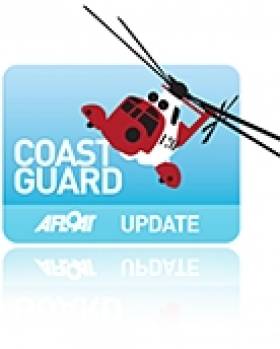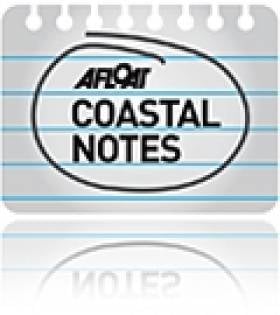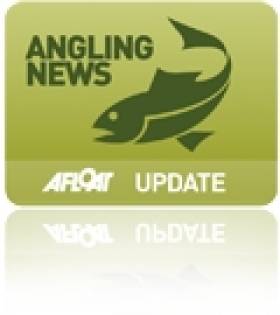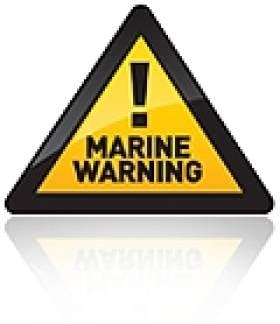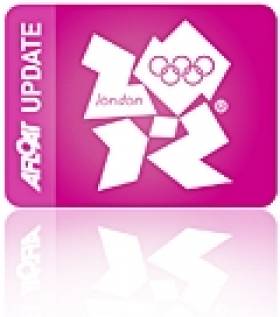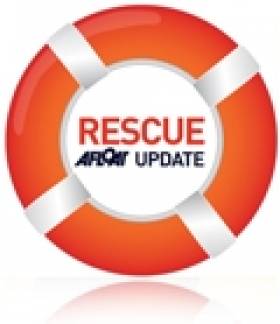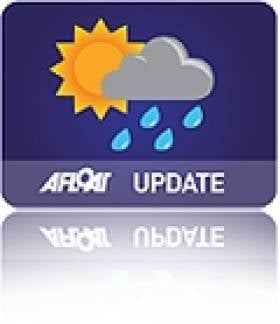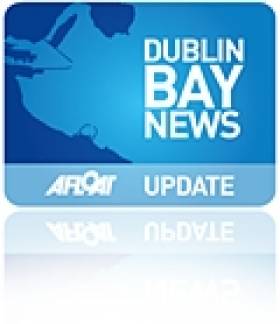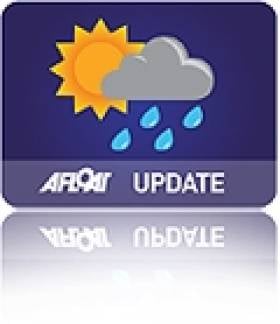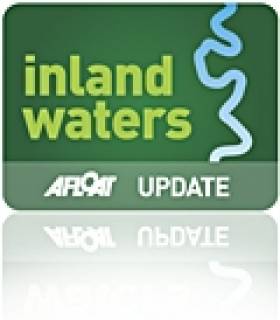Displaying items by tag: Dublin
Italian Coastguard to Deliver Keynote at Dublin Conference
#COASTGUARD - Representaives of Italy's coastguard will give an account of its handling of the Costa Concordia tragedy at an international conference in Dublin next month, The Irish Times reports.
The Italian coastguard has been invited to deliver the keynote address at Search and Rescue 2012, which is being hosted in Ireland for the first time.
It is expected that this address will include a detailed account of the sinking of the cruise liner Costa Concordia last month.
At least 17 people have died and 12 are still missing after the ship ran aground on the western Italian coast. One Irish couple were among the thousands rescued from the stricken vessel.
Meanwhile, attendees at the conference - which is being hosted in the year of Ireland's charing of the EU coastguard network - will also witness demonstrations of the Irish Coast Guard's rescue helicopter fleet at Weston Airport in Leixlip.
As previously reported on Afloat.ie, Irish Coast Guard director Chris Reynolds has been charged with preparing the grounds for a permanent secretariat to be run by EU coastguard officers.
Dolphin Group Comments on Dalkey Island Prospect
#DALKEY ISLAND PROSPECT - The Irish Whale and Dolphin Group (IWDG) has joined the chorus of opposition to the proposed oil and gas exploration off Dalkey Island in Co Dublin.
As previously reported on Afloat.ie, Providence Resources has applied for a foreshore licence to search for oil or gas about 6km out to sea on the Kish Bank Basin.
But the prospect has provoked a split in the local community over the potential risks and benefits, with many calling for a public enquiry into the licence before it is granted.
This evening an urgent meeting in Dun Laoghaire will address the public's concerns, which have been echoed by the IWDG.
"The Kish Bank and adjacent waters are important for cetaceans," said the group in a statement. "In addition, sightings of bottlenose dolphins have increased dramatically in the area following the presence of a group of three individuals since August 2010."
The IWDG is concerned about the potential effects on dolphins and porpoises that "could due to noise generated from the drilling process", noting that "there is little published data on the intensity and effects of sound generated by drilling".
Protest group Protect Our Coast has launched a online petition against the Dalkey Island Prospect citing concerns over the proximity of the drilling area to the mainland as well as the Special Protection Area of Dalkey Island, which is a haven for marine wildlife.
- Irish Whale and Dolphin Group
- IWDG
- Dalkey Island Prospect
- Coastal Notes
- Dalkey Island
- Dublin
- oil and gas
- exploration
- drilling
- Providence Resources
- foreshore licence
- Kish Bank Basin
- community
- Dun Laoghaire
- bottlenose dolphins
- Porpoises
- Cetaceans
- noise
- sound
- Protect Our Coast
- protest
- petition
- Special Protection Area
- marine wildlife
Four News Records in Irish Specimen Fish Committee's 2011 Report
#ANGLING - The Irish Specimen Fish Committee's annual report for 2011 features catch details for 587 specimen fish as well as four new records, according to The Irish Times.
The report comes ahead of the committee's annual awards event at the Red Cow Moran Hotel in Dublin on Saturday 3 March, recogising those anglers who work hard to catch and record the biggest fish of each of Ireland's species.
Those in line for awards include Terry Jackson, who caught a 2.1kh roach/rudd hybrid in the River Lagan; Dutchman Jan Vrieswijk who landed a 1.33kh blackmouth dogfish in Red Bay, Co Antrim; and Noel Lane for his 2.83kg thin-lipped mullet from Cork Harbour.
The Irish Times has more on the story HERE.
Marine Notice: Hydrographic Survey in Irish Sea
#MARINE WARNING - The latest Marine Notice from the DTTAS advises all seafarers in the Irish Sea between north Dublin and north Wales to give a wide berth to the hydrographic and oceanographic survey operation in the area this week.
The SV Bibby Tethra (callsign 2EGF8) commenced survey operations yesterday (Monday 16 January) from offshore at North Beach in Rush to approximately 16 miles offshore north of Anglesey. The survey is scheduled for seven days, subject to weather delays.
The vessel will operate on a 24-hour basis, displaying appropriate day shapes and lights during survey operations, and will transmit an AIS signal. The vessel will be keeping a listening watch on VHF Channel 16 at all times during the operations.
Survey operations will involve towing survey equipment up to 100m astern of the vessel along pre-defined survey lines, which will restrict the vessel’s ability to manoeuvre.
Details of the survey area are included in a PDF of Marine Notice No 2 of 2012, which is available to read or download HERE.
Worrall Thompson Thanks Irish Wife at Fundraiser for 470 Duo
#WORRALL THOMPSON - Celebrity chef Anthony Worrall Thompson - in Dublin at the weekend for a fundraiser for Olympic hopefuls Ger Owens and Scott Flanigan - has credited his Irish wife with being the "rock" that kept him going through his recent shoplifing controversy.
"She is absolutely amazing," he told the Irish Independent of his Dublin-born wife Jacinta Shiel. "We met nearly 20 years ago. She's gorgeous, she's got a great heart and she's my rock."
Worrall Thompson was at Malahide Rugby Club on Saturday to judge a celebrity chef night in aid of the Olympic 470 duo's bid for a spot at the 2012 games, as previously reported on Afloat.ie.
He kept his promise to attend the event following last Monday's public apology for his "stupid and irresponsible actions" after he was caught shoplifting cheese and wine from a Tesco store.
Worrall Thompson also donated his appearance fee from RTÉ's Saturday Night Show to Owens and Flanigan, who require sponsorship to supplement their support their funding from the Irish Saling Association.
Search Resumes for Missing Fishermen in West Cork
#RESCUE - The search resumed this morning for five men missing after their fishing boat went down in rough seas in West Cork early yesterday, The Irish Times reports.
One of the six-person crew of the Tit Bonhomme was rescued when he was able to reach the shore, after the boat ran aground near Adam's Rock at the mouth of Glandore Harbour.
The missing include skipper Michael Hayes from Helvic Head in Co Waterford, Dubliner Kevin Kershaw (21) and Egyptians Said Mohammed (23), Wael Mohammed (35) and Attea Ahmed Shaban (26).
Abdul Mohammed (43) was airlifted by Irish Coast Guard helicopter to Cork University Hospital, where he is in a stable condition.
As previously reported on Afloat.ie, the fishing boat was returning to its home port of Union Hall early on Sunday in strong force 7-8 southeasterly winds when the incident occurred.
Naval Service and Garda divers were scheduled to search the sunken vessel today after postponing yesterday due to poor light and big swells.
The Irish Times has more on the story HERE.
Ireland Battered by Storm-Force Winds
#WEATHER - Ireland has been warned to brace for further strong winds set to sweep across the country today (4 January),
The Irish Times reports. Winds reaching near hurricane speeds have affected coastal communities in the north and northwest, peaking at a remarkable 168km/h in Donegal.
Thousands of euro worth of damage was caused when the roofs of traditional thatched cottages at Cruit Island in west Donegal were blown away.
But the west and east have also been hard hit, with storm-force gales exceeding 100km/h uprooting trees and disrupting electricity supply.
As previously reported on Afloat.ie, ferry services on the east coast have been severely affected. Irish Ferries cancelled two fast ferries from Dublin to Holyhead yesterday, and today's early Jonathan Swift sailings between Dublin and Holyhead were also cancelled.
Met Éireann expects wind speeds to be lower today, but could still reach 90-120km/h in some areas.
The Irish Times has much more on the story HERE.
Dun Laoghaire Earmarked For Stop on First MOD70 Euro Tour
#DUBLIN BAY NEWS - The inaugural European Tour for the MOD70 trimaran class is set to come to Dublin next summer, pending agreement with the relative authorities in January.
The Irish Times reports that the National Yacht Club is at the head of efforts to include an event in Dun Laoghaire on the first tour for the new 70-foot design.
But apart from the Dun Laoghaire Harbour Company, there has so far been little support from local or national authorities despite organisers waiving the €250,000 franchise fee.
John McKenna of tour organiser OC Thirdpole says he is determined to ensure Dublin is included, and that costs will be borne by the competing teams.
However, he added: "The tour needs to be assured that it will have a major public occasion in Dublin if it is to commit to coming here."
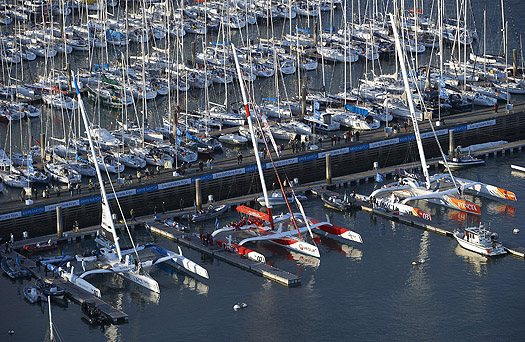
The MOD 70 fleet – plans are afoot to bring the fleet to Dun Laoghaire and moor them off the National Yacht Club at the Carlisle Pier
As previously reported on Afloat.ie, Dublin Bay welcomed its first MOD70 earlier this year when yachtsman Roland Jourdain tested his Veolia Environnement trimaran ahead of the Fastnet Race.
The Irish Times has more on the story HERE.
Easy Swim at Forty Foot on Warmest Christmas Day in Years
#WEATHER - Those hardy Yuletide bathers at the Forty Foot in Dublin didn't need to be so brave this year, as Ireland experienced one of the warmest Christmas Days on record.
Just one year ago Ireland was in the grip of a deep freeze. But as the Irish Independent reports, temperatures on Sunday last rose to as much as 14.4 degrees in Co Cork.
It's been almost a decade since late December temperatures reached such levels, when Christmas in 2002 saw highs of 14.6 degrees according to Met Éireann records.
Sunny spells on the east coast brought out the polar bear plungers to Sandymount and the Grand Canal as well as the famous Forty Foot bathing spot in Sandycove.
The Irish Independent has more on the story HERE.
Fond Memories of Guinness Barges on the Liffey
#INLAND WATERWAYS - As Derek Evans writes in The Irish Times, the recent discovery of the first Guinness merchant vessel - sunk a century ago by a German torpedo in the Irish Sea - rekindled memories of the brewery's boats on the Liffey in the 1950s.
He writes: "Living close to Stoneybatter, I often took time to stand on Queen Street Bridge as the barges, filled with Guinness barrels, slowly made their way from James’s Gate to Sir John Rogerson’s Quay.
"I remember clearly the skipper standing beside the open wheelhouse in his navy blue polo-neck jumper, captain’s hat and pipe... The skipper always had a smile and a wave before he would disappear for a few moments under the white cloud."
He also recalls the hoisting of the barrells at Butt Bridge onto the Guinness cargo vessels - like the WM Barkley, the Lady Grania or Gwendolen Guinness - for transport to Liverpool.
As previously reported on Afloat.ie, the wreck of the WM Barkley was captured in high-resolution images taken from the national research vessel RV Celtic Voyager off the coast of Dublin.
The Irish Times has more on the story HERE.


























